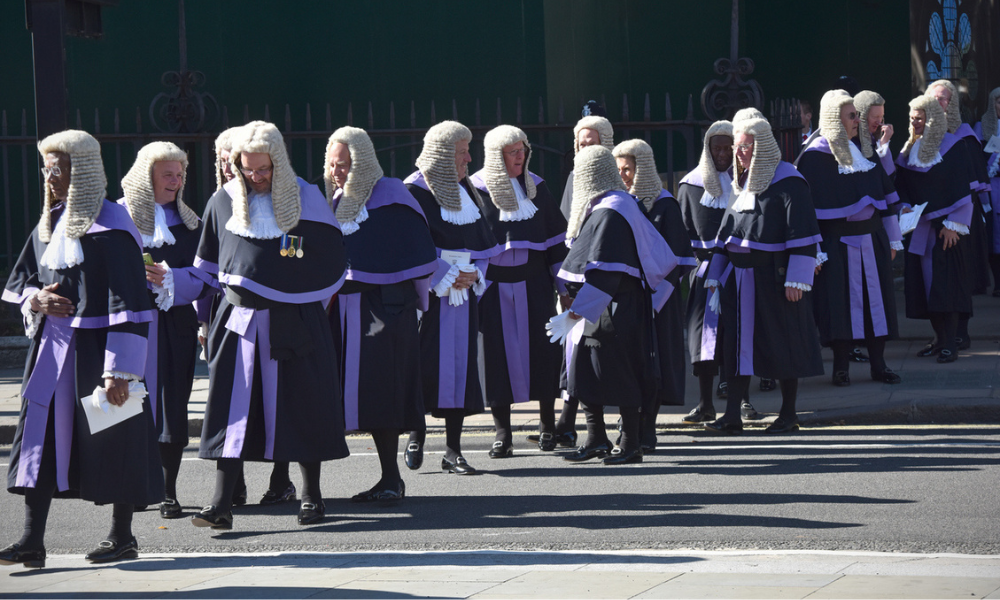For many retailers already established in Quebec, as well as those looking to set up shop in the province, a new campaign to ensure that outside store signage complies with the Charter of the French Language is leading to questions about what is ultimately best for their brand.
Concerned by a fresh upsurge of multinational retailers coming into Quebec and using trademarks exclusively in other languages, the Office québécois de la langue française has made the issue a priority, kicking off a campaign last November aimed at urging companies to comply with language requirements with respect to signage.
“The legal requirement is that a descriptor has to be added to a trademark,” says Louise Marchand, president and chief executive of the Office québécois de la langue française who spoke to Canadian Lawyer InHouse in an interview conducted in French and translated into English.
Although one of the Charter’s regulations says a trademark can be used in a language other than French on public signs unless a French version has been registered, the Office explains that if that trademark in another language is used as a business name, companies have to add a French descriptor or slogan to explain the activities of that business.
Without naming names of companies who it says don’t comply, one example of a retailer that does, says Marchand, is optical company New Look EyeWear, which in Quebec uses the name Lunetterie New Look, adding a description in French to its brand name.
“We think that it is very important that we send a very clear signal that the law has to apply and that large companies who use their trademark as a name comply with the law,” says Marchand. While the campaign is driven by the arrival of more “big-box” retailers, the requirement applies to all businesses.
But rather than a question of companies failing to abide by the legal requirements of the Charter or being dismissive of cultural issues, Kelly Moffatt, head of the marketing and distribution practice group at Osler Hoskin & Harcourt LLP, says many retailers already thought they were working within the Charter’s legal framework. “A lot of the retailers, certainly clients I deal with, are good corporate citizens, and they say, ‘this is the law, this is what the Charter says, and this is what the Charter requires and this is what we have been doing and we continue to do,’” she says.
“There [have] not been any recent changes to the Charter, so we’re dealing with the same legislation and regulations that we’ve been dealing with in Quebec for quite some time,” she adds.
With the new campaign, the Office, she says, is taking a trademark analysis approach, saying that when you put that company sign on the outside of a store, it is not being used as a trademark, but as a trade name.
From the retailer perspective, they say they are not putting their firm name (a numbered company, for example) on their stores, but rather using a trademark to identify their products and services and distinguish them from other retailers down the street, she says.
“A trademark under the Trade-marks Act is used with services if you display it or use it in the performance or the advertisement of your services,” explains Moffatt.
“It’s not surprising that most retailers felt that the use of their trademark on signs outside their storefronts was fully permitted under the Charter. Especially since — you have to understand that it’s not because you put a trademark on a sign that happens to be in front of a store that it is no longer a trademark and in particular, their corporate name or the company name of many businesses is very different from their trademark,” says Christine Carron, a senior partner in the Montreal office of Norton Rose LLP.
In many jurisdictions, she says, retailers are permitted to use trademarks in their native language without restriction. “In a market that’s increasingly globalized, it’s a bit difficult to maintain marks that are different from country to country,” adds Carron.
The signage issue is not a new one in the province. Mark Power, an assistant professor at the University of Ottawa Faculty of Law, focusing on constitutional law and language rights, says the generation of cases in this area from the 1980s and early 1990s, such as the 1988 Supreme Court of Canada decision in Ford v. Quebec (Attorney General), were essentially testing whether it was legally possible to regulate the language of signs.
“Whereas, perhaps it seems like now, there’s more of an effort on the part of the Office to insist on implementing the requirements that nobody seems to be really challenging anymore as being illegal,” he says.
More recent litigation on the issue, says Stéphane Teasdale, chair of the National Franchise and Distribution Group at Fraser Milner Casgrain LLP, resulted in the courts saying that the exception in the regulation can apply to a well-established name, even if it’s not registered. Indeed, Moffatt says the concept of what constitutes a recognized trademark is defined under the federal Trade-marks Act, where even non-registered trademarks can have recognized trademark rights.
The result of the campaign so far has been a relative flurry of activity since mid-2011 for companies responding to correspondence from the Office, engaging in discussions with organizations like the Retail Council of Canada and waiting to see what the campaign brings, explains Moffatt.
When contacted for its views on the campaign, the Retail Council of Canada said it “has no comment at this time.”
Essentially, says Moffatt, the decision to add a descriptor is a branding and marketing issue, rather than a legal issue, raising the question of the power of a company’s brand and who is the custodian of many retailers’ most important asset.
“I think it’s an issue of those specific retailers being in control of their brand and if they make a business decision of ‘I want to have a French version of my name,’ so like a Shoppers Drug Mart in Quebec is Pharmaprix,” she adds.
The challenge companies face now is to either work with the Office and try to comply with a policy that the courts have not yet enforced, or take a more challenging position, making them possibly subject to fines, says Teasdale.
There are arguments to be made on both sides, say lawyers. For some companies, there is an advantage to adapting their brand for the market, but for others, the brand speaks for itself and adding a descriptor could lessen its impact. “The brand is the brand and if I were a company and I thought that adding a French description would diminish the brand or affect the brand in a negative way, I would probably not want to do anything,” says Teasdale.
But from a strictly marketing point of view, he says, a case could be made that it’s a good thing that companies are trying to adapt. “It’s just another demonstration, when a foreign company comes into a market like Quebec, they have to adapt their concept, whether it’s signage, whether it’s product line, whether it’s appearance of the store, layout of the store, advertising, whatever it is, they generally try to adapt to the market so that it’s appealing to the consumers in that market,” he says.
However, one consideration for retailers, explains Teasdale, is that if they add a descriptor in French to a registered trademark, then they have to re-register the trademark to make sure it is protected. If not, he says, you jeopardize that registered trademark.
Depending on the retailer and the strength of their brand and business objectives, adding a descriptor could possibly be a positive step, but ultimately represents a blurring of the line between what the legal requirements are and what an individual company’s marketing decisions are, says Moffatt.
Teasdale says he has already had questions from clients regarding the campaign, but at this stage, companies are reflecting on what they plan to do, and possibly looking at market studies. The answer to these questions, he says, is “what’s best for your brand?”
“I suspect that what you will be seeing in the next year are companies that are making some changes and others that are just staying the same. But right now, I don’t think anybody’s running to change their name,” he says.
From the Office’s perspective, it says it is looking for results based on awareness and co-operation, rather than legal penalties. Organizations with more than 50 employees are required to register with the Office, where an adviser works with the company to determine which measures it needs to carry out to comply with the Charter, under what it says is a reasonable timeline. The Office has also been meeting with chambers of commerce and other business associations on the issue. As a last resort, fines of $1,500 to $20,000 could be levied against companies for a first infraction.
“In some ways, perhaps it’s a less expensive strategy and perhaps a more socially cohesive strategy to warn before things are built, than to run after people after the fact, in order to implement the Act,” says Power.
Ultimately, says Moffatt, it is perhaps the legislation that needs to adapt. “If the current legislation, which is meant to protect these unique cultural issues and language issues, is insufficient, the appropriate approach is to deal with the legislator and have amendments made to the legislation or the regs,” she says.
“Things have changed since the ’70s with this legislation and we need to regroup, revisit, and revise, and I think retailers would be probably receptive to that,” she adds.







